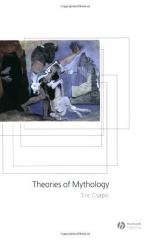|
This section contains 524 words (approx. 2 pages at 300 words per page) |

|
Advances in Human Civilization
Summary: Discusses the evolution of humans. Outlines pre-Paleolithic Age discoveries and cultural advances. Describes early religions.
Around 10,000 B.C., mankind was changing drastically from the primitive humans they once were to the awe-inspiring civilizations they became. After evolving over millions of years, the Paleolithic Age had ended, and man had advanced to the point of settlement. The greatest advances that led them to this transition were the discovery of fire and culture, the beginning of religion, and settlement and agriculture.
The discovery of fire was probably the most important discovery of all, and yet also perhaps inevitable. Fire was a great achievement because once the early humans had fire, many other advances would follow. For example, fire, being another source of light, had gained them access to the hours of darkness, and they could then do things after the sun had gone down, and also learned to cook their food. The fire was a source of comfort and warmth, and naturally, people gathered around...
|
This section contains 524 words (approx. 2 pages at 300 words per page) |

|


